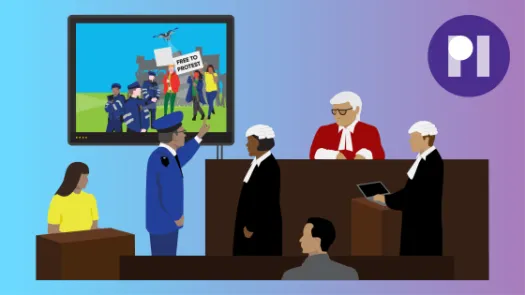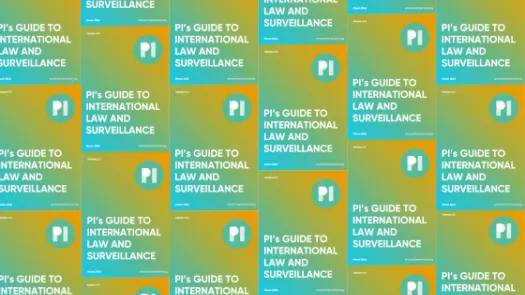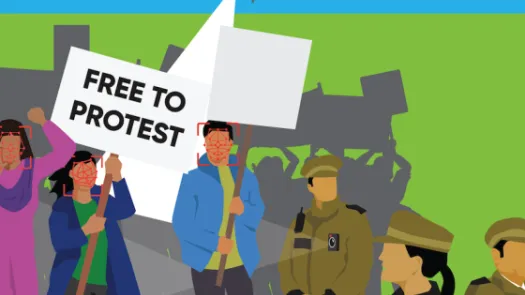Intrusive surveillance technology is increasingly used during protests around the world.
This technology is often being deployed in secret, without a clear legal basis and without the safeguards and oversight mechanisms applied to other surveillance technologies under international human rights law.
This has a chilling effect on civic society and infringes on our right to privacy, freedom of expression and freedom of assembly and association, as guaranteed under international human rights law.
It is essential to keep track of them. We want individuals engaging in protest to know what is being deployed so they can take mitigating steps to uphold their right to privacy and freedom of expression. Visit our tracker to learn more.
We will continue to advocate for transparency and safeguards to apply to the entire complex and growing ecosystem of surveillance technology abused during protests.
What is the problem
Protest surveillance today involves the acquisition, processing, generation, analysis, use, retention or storage of information about people engaging in protest just for participating in protests, without any regard to whether they are suspected of wrongdoing.
Protest surveillance negatively affects human rights, especially the right to privacy and freedoms of assembly and expression. Unjustified interferences with privacy prevents the enjoyment of other rights and they often provide the gateway to the violation of the rest of human rights freedom of movement, principle of non discrimination, as well as political participation.
Why it matters
Protest surveillance enables significant power imbalances and hinders people’s autonomy and dignity and creates an atmosphere of fear around speaking out.
It creates an environment of suspicion and threat, which can cause people who are not engaged in any wrongdoing to change their behaviour, including the way they act, speak and communicate.
In doing so, it inhibits the legitimate exercise of our rights. It endangers society’s ability to experiment and evolve, and challenge power structures.
What is PI doing
- PI is has brought legal challenges against the disproportionate use of surveillance powers such as the mass interception of communications.
- We educate people on how to take steps to protect their privacy when participating in protests.
- We conduct research on new technologies and how they are used by law enforcement and intelligence agencies, in order to better inform the public debate around whether and if their use is justified.
- We analyse the impact of other forms of surveillance on the right to privacy and on how it affects groups of individuals.
- We push national and international bodies to listen to peoples’ concerns and take steps to protect people’s privacy. We also contribute to the development of international standards.
- Together with our global network, we advocate and campaign to protect the right to privacy, autonomy, and dignity.




